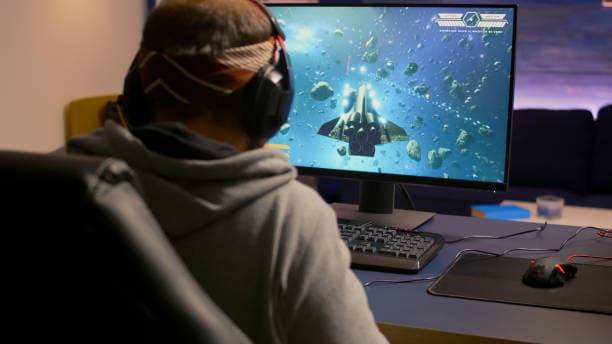Game development is an exciting process that can be both a fascinating hobby and a promising career. As technology continues to evolve in 2024, it’s becoming increasingly easier to get started in this industry thanks to the availability of tools and extensive resources for learning.
If you’ve decided to become part of the world of game development, it’s important to start with the right steps and choose the right tools.
Choosing the Right Game Engine
The first and one of the most important steps in game development is choosing a game engine. There are many options, but Unity, Unreal Engine, and Godot remain the most popular in 2024. Each of these engines has its own unique features and is designed for different tasks and development styles.
Unity:
Unity is a powerful engine that is suitable for beginners and professionals alike. It supports a variety of programming languages including C#. Unity is ideal for those who want a rich set of tools and a huge number of ready-made assets and templates.
Unreal Engine:
Unreal offers high-quality graphics and ample opportunities to create complex game mechanics. It uses the Blueprints visual programming system, making it accessible to those unfamiliar with text-based coding.
Godot:
Godot is a completely free and open-source engine that supports both 2D and 3D game development. It is attractive to beginners due to its simplicity and flexibility.
Learning the Basics
After choosing an engine, the next step is to learn the basics. The most effective approach is hands-on learning by creating small projects. Start by learning the basic features of the engine and the fundamentals of programming. Resources such as official documentation, video tutorials, and forums will be very helpful.
Hands-on projects:
- Flappy Bird – Start with something simple, such as cloning Flappy Bird. This will help you understand how to work with basic user input and physics.
- Pong – creating clones of the classic Pong game will allow you to master collision handling and basic AI logic.
- Crossy Road – slightly more complex than previous projects, will help you understand level generation and more advanced mechanics.
Working with Assets
At the initial stages you should not focus on creating your own assets. Use ready-made resources from sites such as Open Game Art to focus on learning the programming and mechanics of the game.
Participation In Game Jams
Game jams are a great opportunity to test your skills in a real-world environment, working within a limited time frame. Ludum Dare is one of the most popular jams that gathers developers from all over the world. Participation in such events promotes not only the development of technical skills, but also the ability to work in a team and under pressure.
Further Training and Development
After mastering basic projects and participating in game jams, you can move on to creating more complex games. Projects lasting a month or more allow you to delve deeper into the development process, honing skills such as level creation, interface design and working with audio. This will be a great opportunity for developers to apply their accumulated knowledge and experiment with new ideas.
Building Your Portfolio
As you build projects, it’s important to collect and showcase them in your portfolio. This will not only help in self-assessing your skills, but also when looking for jobs or collaborating with other developers. Your portfolio should reflect a variety of skills, including programming, level design, and possibly working with graphics and sound.
Learning Additional Skills
Once you feel confident in the basics of game development, you can start learning more advanced aspects such as:
- Shaders and particles – to improve the visual quality of the game.
- Network programming – to create multiplayer games.
- Performance Optimisation – to make your games run smoothly on all platforms.
Critically Analysing Games
In addition to technical skills, it is important to develop the ability to analyse games to understand what makes them successful or unsuccessful. Play different games and analyse their design, mechanics and user interface. This will help you better understand how to create quality games and avoid common mistakes.

Plan Your Learning
To successfully master game development, you need to consistently plan your learning and practice. Here’s a sample plan that can help aspiring developers navigate their way:
- Choosing and learning an engine – first few weeks.
- Creating simple game projects – 1-2 months.
- Participating in short game jams – regularly, to test skills.
- Creating a more complex project – 1 month.
- Learning additional skills and participating in longer jams – next 6 months.
- Constantly updating portfolio and seeking feedback.
Conclusion
Starting a career in game development in 2024 is an exciting adventure full of creative and technical challenges. With the right tools, perseverance, and a willingness to learn, you can not only create exciting games, but also constantly evolve as a professional. Don’t be afraid to experiment and take on challenges, as every project brings new knowledge and experience.